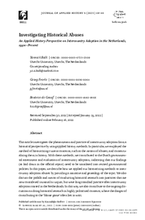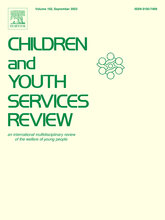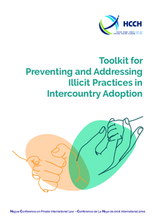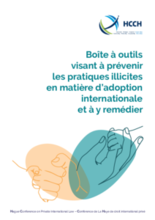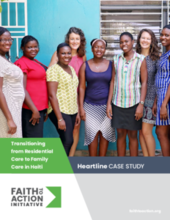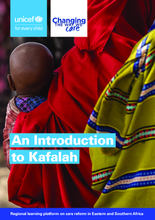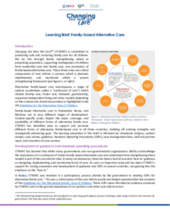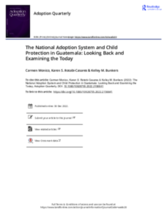Displaying 51 - 60 of 660
This article investigates the phenomenon and practice of intercountry adoption in the Netherlands from a historical perspective by using applied history methods.
This paper assesses the legal regime governing inter-country adoption under the Ethiopian family laws by making a brief comparative study with correspondent provisions of the Chinese family law.
Using caregiver survey data, this study examined the following questions: (1) What is the prevalence of children or youth living apart (LA)? (2) What are the risk and protective factors at child and family levels that are associated with LA? (3) What is the nature of the relationships between family members among those who have experienced LA? This study re-purposed data from surveys of adoptive parents and guardians of children formerly in foster care in four U.S. states.
This toolkit provides Central Authorities with a template for how they could respond to queries from victims of illegal and illicit adoptions.
Cette boîte à outils fournit aux Autorités centrales un modèle sur la manière dont elles pourraient répondre aux demandes des victimes d'adoptions illégales et illicites.
This book chapter highlights the consequences of the recognition of the kafala related to the religious freedom of the immigrant’s family, with a special concern to intergenerational transmission of religious values and the religious education of children in host countries.
The story of Heartline’s transition from residential care to family care is told in this recently released Faith to Action case study. The case study details their experience through three stages of transition—learning, preparation and planning, and full transition—with transparency. It addresses common challenges for transitioning organizations, as well as the strategies Heartline took to overcome them.
This paper aims to contribute to a better understanding of the nature and characteristics of Kafalah in Eastern and Southern Africa and identify effective strategies to support Kafalah.
This learning brief was developed as part of Changing the Way We Care's 2022 annual report and shares learning on family-based alternative care from Guatemala, Moldova, India and Kenya and links the reader to additional CTWWC resources on the topic.
This article discusses the evolution of adoption policy and practices in Guatemala from the 1990s to 2021.

